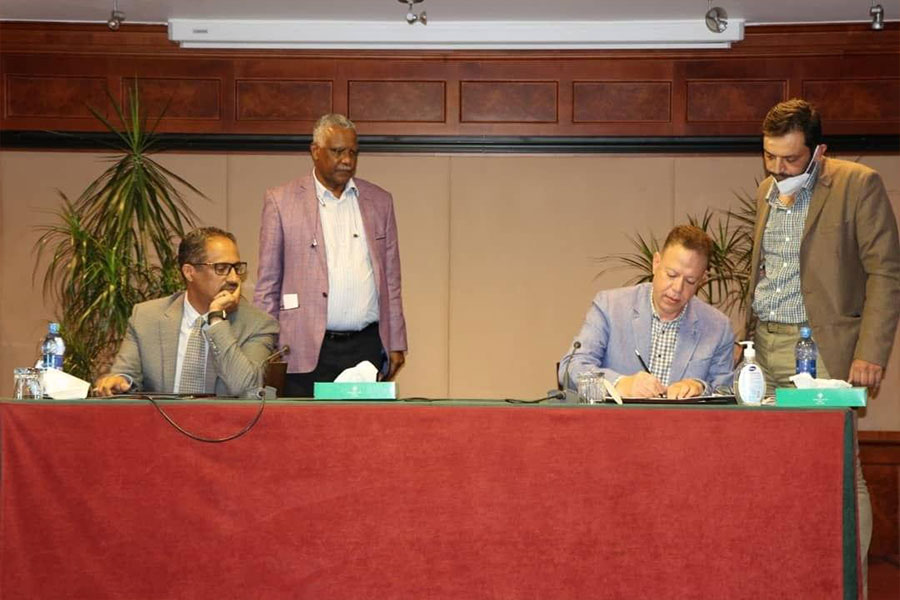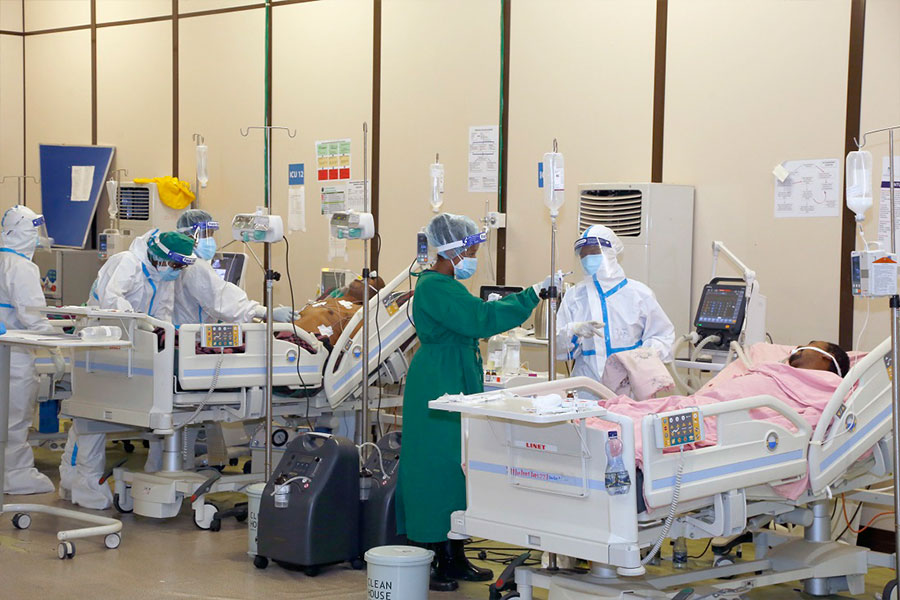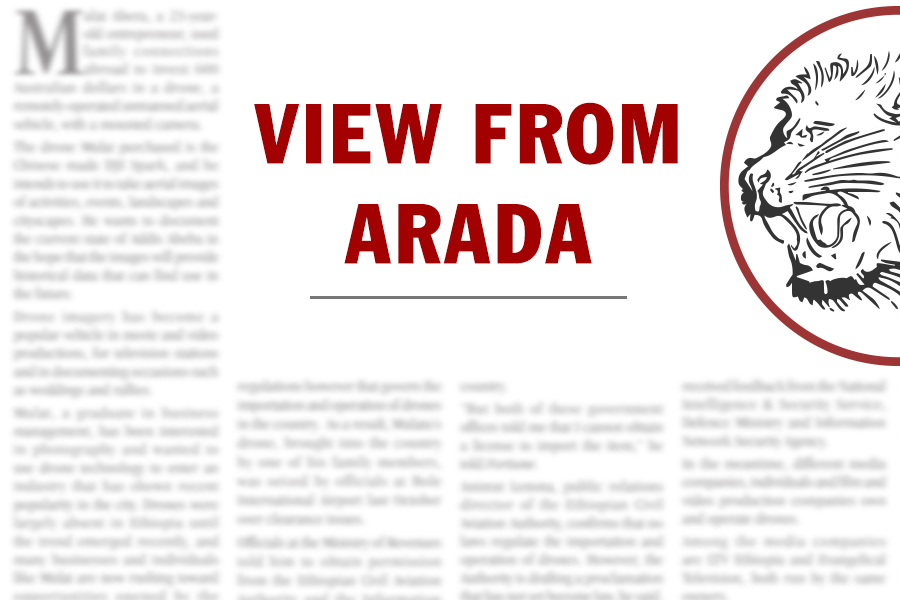
Commentaries | Feb 12,2022
.
Prime Minster Abiy Ahmed (PhD), while defending a budget bill tabled by his administration in parliament, indicated that the macroeconomic policy his governing coalition has been following for the last 15 years would be changing. It is perhaps the first significant policy pronouncement he made since his ascension to political power a little over a year ago.
The Prime Minister described the policy prescription that has brought the country this far as “big push” economic policymaking. He acknowledged that this policy, despite its gains on social and economic fronts, has reached its limits. Abiy declared it is time to move from “aggregate demand” to “aggregate supply.”
This heralds a significant shift in macroeconomic policymaking in Ethiopia under EPRDF followed for the past almost two decades. It was imperative for the government to take a hyperactive role in economic activities by making considerable investments in infrastructure to give the economy a kick start. In a Keynesian sense, it was a policy followed to the letter to create aggregate demand.
Known in the economic parlance as “demand-side economics,” such a policy is informed by the view that insufficient demand causes unemployment. Its proponents encourage the state to focus on promoting consumption; on public goods and services; investment by industries in capital goods; and net exports. Its macroeconomic goals are reducing unemployment and stimulating growth to further increase demand. And its instruments are the deployment of monetary policy tools to control the money supply or financing public expenditure through an expansionary budget.
Using this blueprint, Ethiopia has accomplished considerable gains in expanding the economy from 11.3 billion dollars in 1991 to 84.3 billion dollars last year. However, every policy prescription carries with it certain risks.
Melesnomics, which relied on massive government investments, inherently carries the risk of creating macroeconomic imbalances. A stock of external debt and the subsequent painful crunch in foreign exchange is one. Ethiopia’s external debt amortisation is projected to reach 1.7 billion dollars next year, according to Moody’s investors services, an amount sufficient to pay for the country’s annual imports of fuel oil and steel. It also claims close to 40pc of Ethiopia’s forex reserves.
The loss of ground by the Birr against a basket of major global currencies and inflation galloping in double-digits is another. The purchasing power of those in the fixed income group has been eroded, while the cost of imported merchandise is escalating, putting pressure on the balance of payments.
It is hard to believe that the architects of Ethiopia’s macroeconomic policy at the time - Meles Zenawi, Neway Gebreab and Mekonnen Manyazewal - were unaware of these risks. But they seemed to believe that these risks could be mitigated and managed, once several of the public projects the country invested heavily in started to generate income in foreign currency.
Two successive generations of growth and transformation plans were designed by these architects having in mind the need to take calculated risks. It worked but only to a point.
Lack of a financing model from the beginning and gross macroeconomic mismanagement during the reign of Hailemariam Desalegn, where he put his administration on a borrowing spree, led to the current paralysis in the economy. The macroeconomic policy that has set the country on the path of rapid growth for a decade and a half has run out of steam.
Today, a declining rate of growth in GDP, double-digit inflation, high exposure to external debt, shrinking export earnings and growing unemployment are testing grounds for those in charge of running the show under Abiy’s administration. They have little choice but to confront Ethiopia’s macroeconomic reality, characterised by low national savings, insufficient investment and low productivity.
The response to this malaise in the economy is a shift to supply-side economics, known as “Reaganomics.” a theory popularised by America’s 40th President, Ronald Reagan. Its promoters believe in the determining factor of production as the main driver of economic growth. Contrary to the Keynesian school, this worldview wants to limit the state’s role in the economy in areas of tax, regulatory and monetary policies.
Prime Minister Abiy’s address to MPs last week reflects a move to these fundamentals. He wants to limit his administration’s role by encouraging more private sector involvement in the economy, focusing on improving the ease of doing business and increasing efficiency by modernising the logistics sector. There have been efforts to come up with business-friendly legislation and enhance the investment climate in the country.
The liberalisation and partial opening up of the telecom and financial sectors, respectively, as well as the privatisation of state-owned enterprises (SOEs), are a series of moves designed to keep the state away from economic activities, if not generating desperately needed forex for short term relief and creating jobs.
This may all be good. Rebalancing the macroeconomic reality is not even a matter of choice. There appears to be hardly any alternative than to pause and rethink. Nonetheless, neither will the move to trickle-down economics be any less easier.
In the absence of national productive capacity, the desire to create aggregate demand in the economy will be futile. Factories do not mushroom overnight to churn goods out. A shortage of products in the market will lead to lots of money chasing a few items, thus an inflationary pressure in the economy. Such a scenario can only be exacerbated by an administration that follows an expansionary budget stance where more money is ready to be injected.
A quick look at the federal government’s budget shows that the administration is not pulling its hand out of the economy anytime soon. The budget is to grow by 11.5pc this year, reaching 386.9 billion Br. Capital spending is still high. The target of 9.2pc growth in GDP shows that even though there may be a desire to see a shift in policy, the nitty-gritty of doing it is far from easy.
Policymakers in following supply-side economics are advised to follow a tight monetary policy stance in a bid to ensure a gentle inflationary outcome. However, Ethiopia’s 22.2pc growth in broad money supply in 2018/19 is five times larger than what is advisable, posing a higher risk of inflation.
And businesses are not getting a tax break that would have ideally helped them reinvest to enhance their productive capacity. At 30pc corporate tax and other compounded tax rates, Ethiopia parallels the welfare states across the world and not the liberal economic policy environment where trickle-down economics would have a chance to succeed.
It is not enough to privatise productive assets in the state’s hand and liberalise closed sectors in the economy with the hope that the private sector will ensure efficiency in production. A macroeconomic policy that aspires to create aggregate supply would provide tight monetary and fiscal stances, lower taxes, reduce the regulatory burden and ensure a competitive market.
An economist described Ethiopia’s current economic standing as not being out of the woods but with light at the end of the tunnel. If the country is to get to that light, wise leadership is needed now more than ever.
It is not as simple as abandoning one model and following another. It is not so much a turn on the road as it is a gradual curve. There are several obstacles and challenges to manoeuvre.
Economic leadership capacity, focus, energy and clarity of purpose from top to bottom in the administration are crucial. As the task of rebalancing the macroeconomy is such a delicate task, it is critical that the policy is carefully formulated as it should be communicated effectively. Ambiguity in policy almost guarantees failure in implementation.
PUBLISHED ON
[ VOL
, NO
]

Commentaries | Feb 12,2022

Fortune News | Oct 17,2020

Radar | Jul 21,2024

Agenda | Apr 03,2021

View From Arada | Jan 11,2020

Viewpoints | Dec 25,2018

Commentaries | Jan 16,2021

Radar | Oct 02,2021

Fortune News | Aug 28,2021

Viewpoints | Jun 21,2025

Photo Gallery | 171621 Views | May 06,2019

Photo Gallery | 161860 Views | Apr 26,2019

Photo Gallery | 151600 Views | Oct 06,2021

My Opinion | 136311 Views | Aug 14,2021

Dec 22 , 2024 . By TIZITA SHEWAFERAW
Charged with transforming colossal state-owned enterprises into modern and competitiv...

Aug 18 , 2024 . By AKSAH ITALO
Although predictable Yonas Zerihun's job in the ride-hailing service is not immune to...

Jul 28 , 2024 . By TIZITA SHEWAFERAW
Unhabitual, perhaps too many, Samuel Gebreyohannes, 38, used to occasionally enjoy a couple of beers at breakfast. However, he recently swit...

Jul 13 , 2024 . By AKSAH ITALO
Investors who rely on tractors, trucks, and field vehicles for commuting, transporting commodities, and f...

Oct 5 , 2025 . By NAHOM AYELE
In Meqelle, a name long associated with industrial grit and regional pride is undergo...

Oct 5 , 2025 . By BEZAWIT HULUAGER
The federal government is set to roll out a new "motor vehicle circulation tax" in th...

Oct 5 , 2025 . By NAHOM AYELE
The Bank of Abyssinia is wrestling with the loss of a prime plot of land once leased...

Oct 5 , 2025 . By BEZAWIT HULUAGER
The Customs Commission has introduced new tariffs on a wide range of imported goods i...